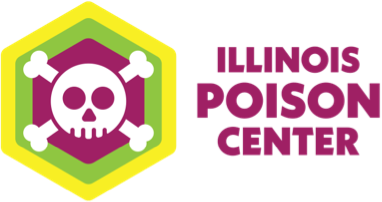Bees
Illinoisans love summer and fall weather. Unfortunately, so do insects! Warmer weather means more bee stings—which in rare cases can be deadly. To keep you and your family safe, see IPC’s tips below.
Symptoms
Bees, hornets and yellow jackets all can sting humans. Symptoms of a sting range from minimal discomfort to life-threatening reactions to those with an allergy.
Reactions to bee stings are divided into three groups based on severity:
- Minor effects include localized swelling, itching, burning, redness, tenderness and minor pain, which does not radiate far from the sting site. These symptoms are the most common.
- Large local reactions are areas of swelling greater than four inches across that develop 12 to 36 hours after the sting. Swelling could spread to several fingers, a whole hand or foot. Note: Sometimes these stings are associated with a bacterial infection, which looks similar to a large local reaction.
- Severe and potentially life-threatening allergic reactions (also known as anaphylaxis) include hives over the whole body, swelling of the mouth and/or throat, wheezing, shortness of breath, chest pain, nausea and vomiting, and anxiety. Life-threatening reactions typically occur within 90 minutes of the sting and require immediate medical attention.
First Aid Tips
To treat minor stings at home, follow these simple steps:
- Step 1: Remove the stinger if it’s in the skin, by gently scraping with an index card or something similar. Avoid squeezing the stinger to prevent injecting more venom into the wound. Note: Only honey bees lose their stingers.
- Step 2: Wash the skin with soap and warm water. Avoid scratching the itchy area to prevent bacterial infection.
- Step 3: Ice the sting area. Place a cloth between the ice and skin to avoid freezing the skin. Do not leave the ice on for more than 20 minutes each hour to prevent skin damage.
- Step 4: To prevent infection, antibiotic creams may help. Seek medical attention if you suspect a bacterial infection at the sting site. Update your tetanus vaccination if it has been more than 10 years since you last received it.
Tips to Relieve Itching and Swelling
- For itching, over-the-counter hydrocortisone cream or topical diphenhydramine may help.
- For itching and swelling, take an antihistamine by mouth (e.g., diphenhydramine or Benadryl®). Caution: These products may cause drowsiness. Do not give diphenhydramine to children under 6 years old unless directed by a physician.
- To dull minor pain, products containing local anesthetics (e.g., primoxine, lidocaine or benzocaine) may provide relief. Ibuprofen (Advil® or Motrin®) or acetaminophen (Tylenol ®) taken by mouth may help to relieve minor pain.
- Do not use home remedies such as damp tobacco leaves or meat tenderizer.
Life-threatening allergic reactions require immediate action: Do not waste time with the first aid measures for minor symptoms above as they will not prevent or reverse a serious allergic reaction. Follow these steps:
- Step 1: If the person stung has a prescription to carry an epinephrine autoinjector (EpiPen®, EpiPen Jr® or Twinject®), administer this medication immediately after he/she to shows symptoms. Follow the instructions included with the autoinjector.
- Step 2: Call 9-1-1 for emergency transport to the nearest healthcare facility.
- Step 3: Give diphenhydramine (Benadryl®) by mouth, if available.
Preventing Bee Stings
- Avoid areas known to have a large number of bees, wasps or hornets, especially if you are allergic to these stings. Do not swat at bees that approach you.
- Avoid disturbing nests and hives. Be aware that lawnmowers and other motorized equipment may provoke the insects.
- Avoid wearing brightly colored clothing and strong perfumes or colognes.
- Avoid drinking from bottles or glasses containing sugary drinks.
- Keep outdoor dining and camping areas clean and free from garbage.
- Wear long pants and long-sleeved shirts.
- If you are allergic to stings, carry your prescribed epinephrine autoinjector kit and antihistamines with you at all times during bee season. Be sure the kit has not expired.
IPC is here to answer your questions about any bite, sting or insect venom. Call us at 1-800-222-1222 any time if you have questions or any poisoning concern.
